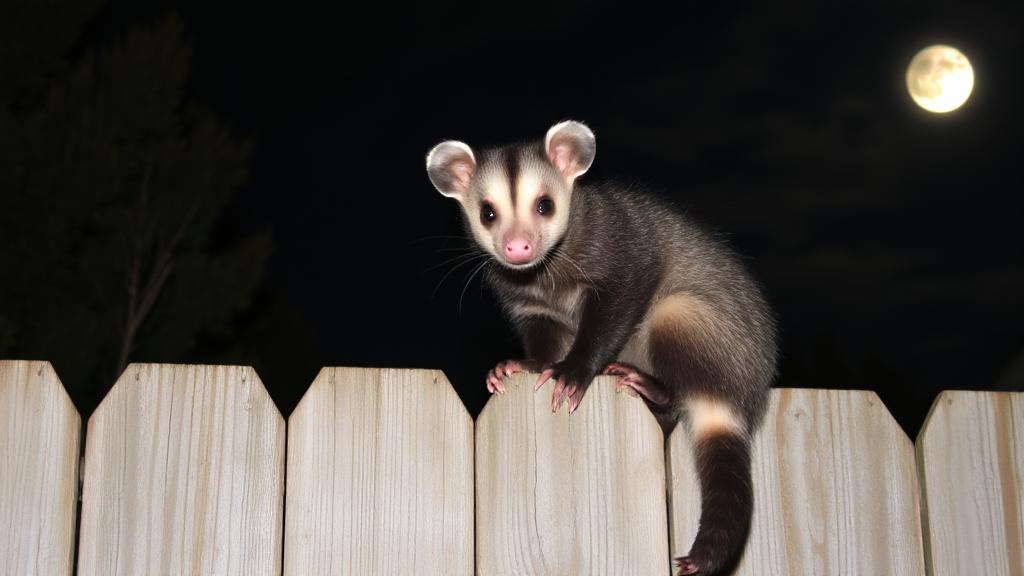Understanding Opossums and Their Behavior 🦝
Opossums (Didelphis virginiana) are North America's only marsupials. These nocturnal creatures are often misunderstood but generally peaceful, preferring to avoid confrontation with humans and pets.
Physical Characteristics and Defense Mechanisms
- Size: Similar to a domestic cat, weighing 4-14 pounds
- Appearance: Pointed snout, grayish fur, and long hairless tail
- Diet: Omnivorous, eating fruits, insects, small animals, and carrion
When threatened, opossums employ several defensive strategies:
- Playing dead (thanatosis)
- Hissing and showing teeth
- Drooling
- Running away
Health and Safety Considerations 🏥
Disease Risks
Opossums are surprisingly resistant to many diseases and pose relatively low health risks. They:
- Have natural immunity to snake venom
- Rarely contract rabies due to their low body temperature
- Excel at eliminating ticks from the environment
However, they can potentially carry:
- Leptospirosis
- Tuberculosis
- Parasites like fleas and ticks
- Tularemia (rabbit fever)
For more information on diseases, visit the Centers for Disease Control and Prevention (CDC).
Interaction with Pets and Humans
Opossums generally do not pose a significant threat to pets or humans. Most encounters end without incident, as they:
- Avoid confrontation when possible
- Only fight in self-defense
- Prefer to flee rather than engage
Expert Tip: Keep pet food indoors and secure garbage bins to avoid attracting opossums to your property.
When to Exercise Caution
Take extra precautions in these situations:
- When an opossum feels cornered
- If you encounter a mother with babies
- When an opossum appears sick or injured
Prevention and Coexistence 🏡
Making Your Property Less Attractive
To minimize opossum visits:
- Secure trash bins with tight-fitting lids
- Remove fallen fruit
- Keep pet food inside
- Seal entry points to structures
- Install motion-activated lights
Benefits of Having Opossums Around
Opossums provide several ecological benefits:
- Control pest populations
- Clean up fallen fruit and carrion
- Act as nature's gardeners
- Help control tick populations
For more guidance on living with wildlife, visit the National Wildlife Federation or the Humane Society.
Remember, while maintaining a respectful distance from any wild animal is wise, opossums are generally harmless creatures that play a vital role in our ecosystem. By understanding their behavior and taking simple precautions, humans can peacefully coexist with these fascinating animals. 🐾
